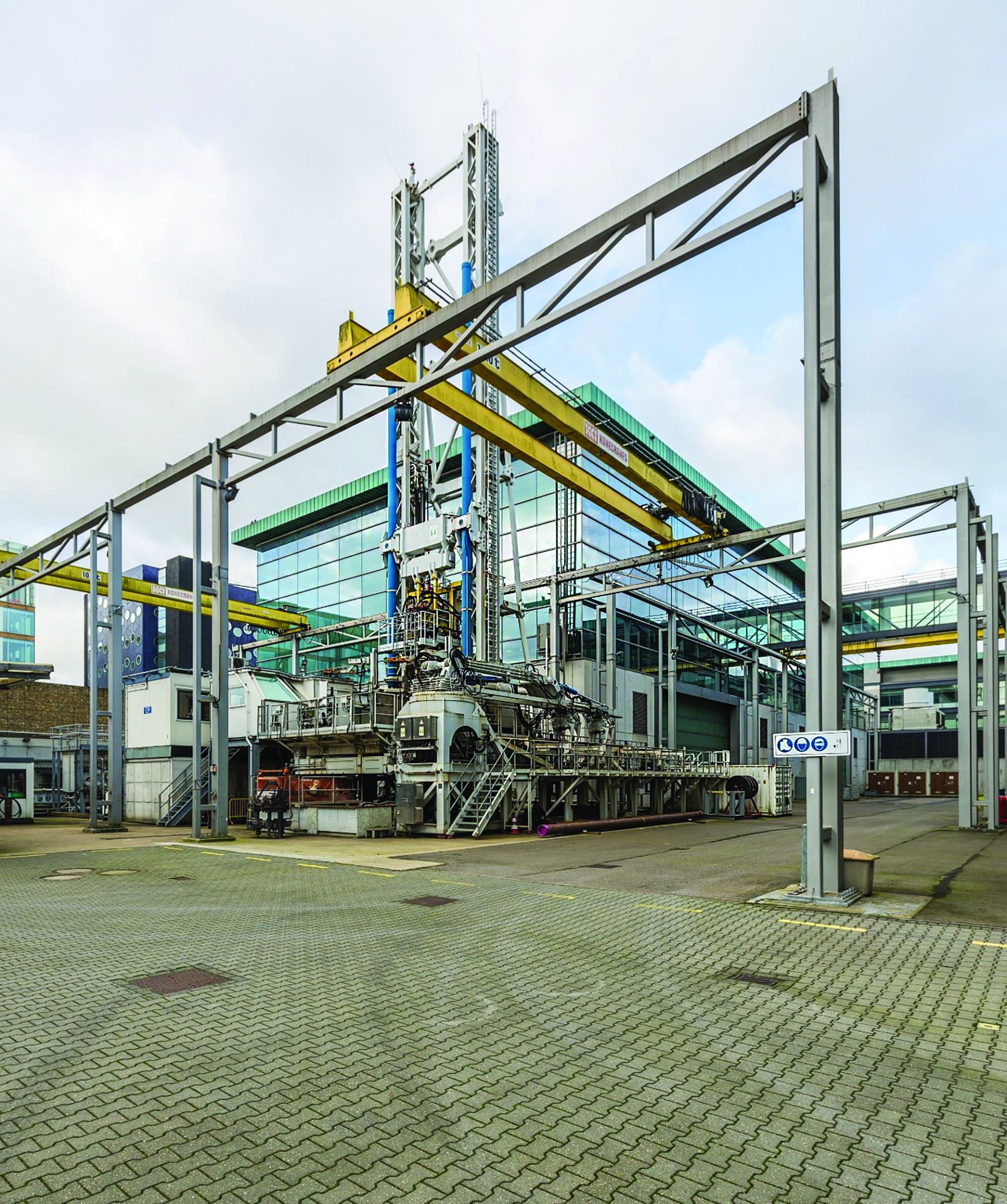
The ‘Rijswijk Center for Sustainable Geo-energy’ (RCSG) was opened on Thursday 5 March 2020. The RCSG is a unique field lab where geothermal energy projects can be tested on a full scale. Geothermal energy can play an important role in the energy transition; in 2050 we can provide a quarter of the heat demand in the Netherlands with geothermal energy. To accelerate this development, the Ministry of Economic Affairs and Climate, Energie Beheer Nederland, Province of South Holland, Municipality of Rijswijk and TNO have set up RCSG.
The RCSG is located in Shell’s former ‘well research and testing center’ in Rijswijk, the Netherlands. Companies active in the field of geothermal energy can use the advanced laboratory. All facilities are available to test under high pressure and temperature and to experiment with new drilling techniques and materials. Almost all underground conditions in the Netherlands can be simulated. Only a few comparable centers exist worldwide.
Importance of geothermal energy
The extraction of geothermal energy can play an important role in the energy transition. It is one of the important sources in the sustainable energy supply. In the Netherlands we now produce 3.5 petajoules of geothermal energy per year, but that share must grow in the future. Geothermal energy is expected to produce about a quarter (200 PJ) of the total demand for heat in our country by 2050. Much remains to be done when it comes to drilling more efficiently. It must become more cost-effective, with continued attention to safety. In short, many technical innovations are needed. The RCSG offers the possibility to develop and test these innovations under the high pressure and temperature conditions present in the subsoil.
Accessible to companies
The center is accessible to companies that want to experiment with (or test) new drilling techniques and materials, for geothermal energy or other sustainable applications. It provides them with access to modern facilities that they would otherwise be unable to use or use with difficulty. The companies now do not have to invest in test facilities themselves. Normally, that is far too expensive, so that potentially beautiful inventions remain unused.
Simulating practice
The center has 20 installations covering the full spectrum of underground drilling. There is a large drilling rig above an almost 400 meter deep well, in which new materials and techniques can be tested. There are hydraulic presses of 300 and 400 tons, pressure vessels up to 1,000 bar and pipe systems for pumping and testing liquids. Underground conditions can be simulated realistically to determine how materials and components behave at a depth of kilometers under high pressure or at high temperatures.